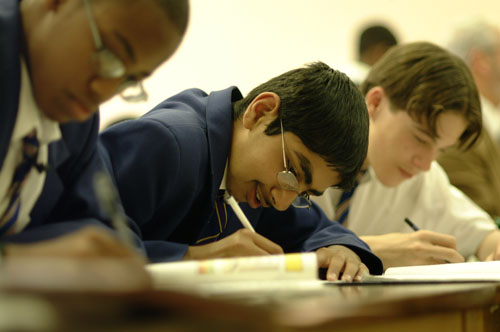
“It is time for the race to the bottom to end. We believe it is time to tackle grade inflation and dumbing down.” — مائیکل Gove
In the fall of 2012, the British Education Secretary, مائیکل Gove, outlined proposals for new qualifications in core academic subjects called English Baccalaureate Certificates. مسٹر. Gove stated that these new reforms would prepare British students for the 21st century and allow them to compete with the best performing education systems around the world.
Are the new performance measures proposed by Michael Gove a solution to “teaching to a test,” improving standards and the overall quality of learning for all students in the UK education system? I asked Michael Young, Emeritus Professor of Education with the School of Lifelong Education & International Development at the Institute of Education, لندن یونیورسٹی, ان نقطہ نظر پیش کرنے.
میں 2004, Michael Young was commissioned to write a report on the implications of National Qualifications Frameworks for developing countries (ILO 2005). He has been an adviser to countries in Europe, Africa and Asia on their policies on qualifications. ان کی کتاب, میں واپس لانے علم (2010), won second prize as UK Education Book of the Year.
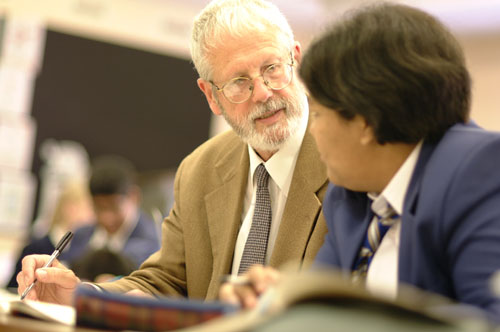
What do you believe are the best and weakest arguments for having the English Baccalaureate Certificates replace the GCSE’s? What would be your best arguments for keeping the GCSE exams?
The main reason why none of the main political parties will risk supporting the widely held view that GCSEs (the 16+ examination) should be abolished is that they are used as the basis of performance tables which enable government to assert a degree of control over schools at a time when they are weakening the existing controls of local government over schools.
GCSEs are a relic of two earlier initiatives. GCE O levels were established in 1951 to cater for at most 20-30 percent of each cohort (each class of students). اس وقت, the majority of pupils left school at 15 (with no certificates) for unskilled factory and office work. This youth labour market disappeared in the 1970s, so these kids were staying on in school with no certificate to aim for. A new certificate, the Certificate for Secondary Education (CSE), was created for the low achievers. GCE’s and CSE’s were then merged in the 1980s to create the existing GCSE’s, with five grades (A – IS); A, B, C being equivalent to the old O levels and D, IS, ایف, and G replacing the CSE’s. The latter became largely worthless for either employment or progression to higher levels and the focus of schools was on grade C or above.
ایک ہی وقت میں, assessment for exams was changed from being norm referenced to criterion referenced, with no limits on the numbers being awarded any grade. The proportion of A – C’s increased every year and this led to a demand for an A* grade to differentiate the A’s. The government feared that if they scrapped GCSE’s (most other European countries do not have a 16+ examination), England would drop in the international performance tables (مثلا. پیسا), and that this might cost them votes. اس کے علاوہ, there is no tradition for trusting teachers to maintain standards without tests and tables. The problem is that students are increasingly ‘trained for the tests’ اور, according to employers and university teachers, know less and less.
The English Baccalaureate (the E Bacc) is a performance measure not an examination. Until it was introduced, performance tables were based on 5 مضامین, but only three were compulsory (انگریزی, maths and general science). The E Bacc merely extends the number of compulsory subjects to include two sciences, a foreign language and a humanities subject. This has had two consequences: سب سے پہلے, schools are dropping many non E Bacc subjects with much opposition from sports and arts communities. دوسرا, schools with, کا کہنا ہے کہ 30 percent of pupils achieving 5 A-Cs on the GCSE subjects, only achieved 5 فیصد (or less) on the E Bacc, primarily because they had dropped foreign language when it stopped being compulsory.
The English Baccalaureate has the merits of strengthening the general academic education of lower achieving students and removing useless, mostly quasi-vocational subjects. The government claims that the E Bacc subjects take up 70 percent of the school timetable, leaving adequate time for arts and sports. تاہم, the performance tables, which rank schools with implications for resources and student intakes, shape all school decisions, so few of the educational benefits of the E Bacc will be realized as long as they are in place.
The English Baccalaureate is an ill thought out, off the cuff scheme. A better approach would be something along the French Baccalaureate lines, یعنی. a three pathway (general/technological/vocational) Baccalaureate with 20+ percent of the curriculum in common, which students can take at different ages and for which there is no external examination at 16.
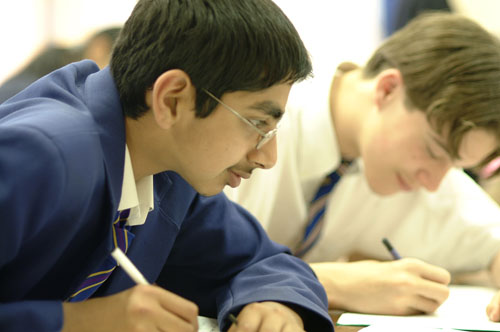
What about taking an approach similar to the International Baccalaureate that measures student’s performance against global peers?
I am a great admirer of the IB, but as an 18+ exam it cannot include more than about 30-40 percent of each cohort without a more applied pathway. I would have a single external examination taken at different ages and abolish performance tables. The key issue is to develop a system in which assessment does not drive curriculum. I am not against the English Baccalaureate in principle. What worries me is its inevitable link to performance tables.
Students learn best when they are being taught to learn as opposed to being taught just to pass a test. Agree?
I agree as long as ‘teaching to learn’ is through specialist subjects. You can only teach or learn something. Teaching to learn and learning to learn are the products of good subject teaching.
As I said earlier, we have standardized tests for social control reasons. تاہم, if you don’t have standardized tests, the social control issues remain. Finland is a good example. They always score high on PISA rankings but they have no external tests and no inspections. How do they do it?
سب سے پہلے, Finns put a high value on education for all – originally out of fear of ‘big brother’ – the Soviet Union.
دوسرا, teaching is a high status profession in Finland. Education faculties in Finland have the highest number of applications for each place.
تیسری, the richest, most powerful, and most successful parents use the state schools, یعنی. سے کم 1 percent of children go to private schools. They have a stake in the quality of schools. انگلینڈ میں, 7 percent of schools are private (fee paying). The political pressure is not to improve state schools but to control them. The rich have no stake in the state schools!
چوتھا, a society has to control schools either by a consensus valuing education for all, or through tests and inspections. If you abolish the latter without establishing the former, you face chaos.
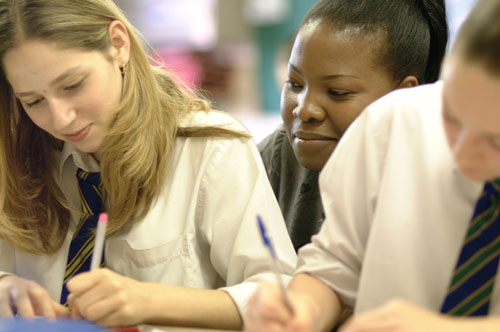
What role should the British government play in education?
Up until the 1980’s and Margaret Thatcher, public education was managed as a relatively inefficient system by a troika of central government, local government, and teacher unions. Thatcher broke all of that up as she thought local government and unions (the providers) had too much power, and parents and employers (consumers) not enough. So she used government to replace ‘provider control’ by a ‘market.’
Why not allow local governments to determine their cities’ or towns’ own educational standards?
It is the rational but not politically realistic option. It’s a view largely shared by the Labour party since Blair.
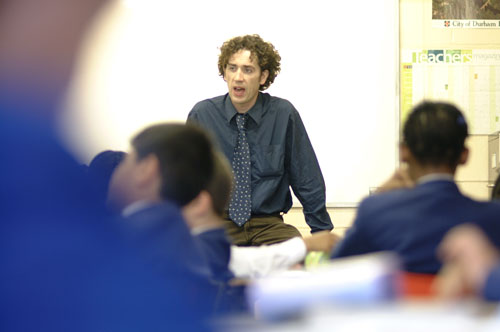
Surveys indicate that parents want to see the arts included in the new Baccalaureate. What are your best arguments for keeping the arts in this new assessment?
As I said before with regard to other subjects, if they keep the performance tables and bring arts into the E Bacc, it will destroy the arts, as schools will be under pressure to teach to the test! A better but unlikely solution would be to abolish the performance tables and broaden the E Bacc.
Since not every child will pass these new exams, what else can be done to prepare children for the real world and make them more competitive in the job market?
گزشتہ دہائی میں, lower achieving students have been encouraged to obtain certificates which have no value outside the tables themselves, as they provide no progress to higher level study and employers do not rate them for jobs. The fact that the students get certificates masks the reality that they are not learning anything. At least the E Bacc’s base curriculum will highlight rather than mask low achievement. The problem is that many schools lack specialist subject teachers in the E Bacc subjects, so unless something is done about teacher supply, nothing will improve.

Photos courtesy of the Institute of Education, لندن یونیورسٹی.
تعلیم کے لئے عالمی تلاش میں, سر مائیکل باربر سمیت میرے ساتھ اور عالمی سطح پر معروف فکری رہنماؤں (برطانیہ), ڈاکٹر. مائیکل بلاک (امریکہ), ڈاکٹر. لیون Botstein (امریکہ), پروفیسر مٹی Christensen کے (امریکہ), ڈاکٹر. لنڈا ڈارلنگ-ہیمنڈ (امریکہ), ڈاکٹر. مادھو چوہان (بھارت), پروفیسر مائیکل Fullan (کینیڈا), پروفیسر ہاورڈ گارڈنر (امریکہ), پروفیسر اینڈی Hargreaves نے (امریکہ), پروفیسر کریں Yvonne ہلمین (نیدرلینڈ), پروفیسر کرسٹن Helstad (ناروے), جین Hendrickson نے (امریکہ), پروفیسر گلاب Hipkins (نیوزی لینڈ), پروفیسر Cornelia Hoogland (کینیڈا), فاضل جیف جانسن (کینیڈا), مسز. چینٹل کوفمین (بیلجیم), ڈاکٹر. Eija Kauppinen (فن لینڈ), سٹیٹ سیکرٹری Tapio Kosunen (فن لینڈ), پروفیسر ڈومینک Lafontaine (بیلجیم), پروفیسر ہیو Lauder (برطانیہ), پروفیسر بین لیون (کینیڈا), رب کین میکڈونلڈ (برطانیہ), پروفیسر بیری McGaw (آسٹریلیا), شیو ندار (بھارت), پروفیسر R. نٹراجن (بھارت), ڈاکٹر. PAK NG (سنگاپور), ڈاکٹر. ڈینس پوپ (امریکہ), شریدر رازگوپالن (بھارت), ڈاکٹر. ڈیانے Ravitch (امریکہ), رچرڈ ولسن ریلی (امریکہ), سر کین رابنسن (برطانیہ), پروفیسر Pasi Sahlberg (فن لینڈ), Andreas کی Schleicher (پیسا, او ای سی ڈی), ڈاکٹر. انتھونی Seldon نے (برطانیہ), ڈاکٹر. ڈیوڈ Shaffer کے (امریکہ), ڈاکٹر. کرسٹن عمیق کر رہے ہیں (ناروے), چانسلر اسٹیفن Spahn (امریکہ), ایوز Theze (اسکول Français کی امریکہ), پروفیسر چارلس Ungerleider (کینیڈا), پروفیسر ٹونی ویگنر (امریکہ), سر ڈیوڈ واٹسن (برطانیہ), پروفیسر Dylan کے Wiliam (برطانیہ), ڈاکٹر. مارک Wormald (برطانیہ), پروفیسر تیو Wubbels (نیدرلینڈ), پروفیسر مائیکل نوجوان (برطانیہ), اور پروفیسر Minxuan جانگ (چین) وہ تمام اقوام کو آج سامنا ہے کہ بڑی تصویر تعلیم سوالات دریافت کے طور پر. تعلیم کمیونٹی پیج کے لئے گلوبل تلاش
C. M. روبن وہ ایک موصول ہوئی ہے جس کے لئے دو بڑے پیمانے پر پڑھا سیریز کے مصنف ہے 2011 میں Upton سنکلیئر ایوارڈ, “تعلیم کے لئے گلوبل تلاش” اور “کس طرح پڑھیں گے?” انہوں نے تین bestselling کتابوں کے مصنف ہیں, سمیت Wonderland میں یلس اصلی.



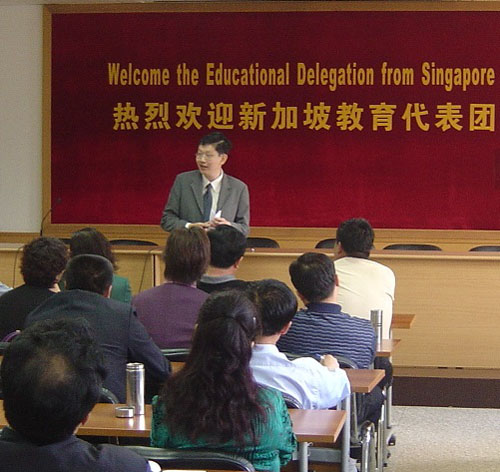
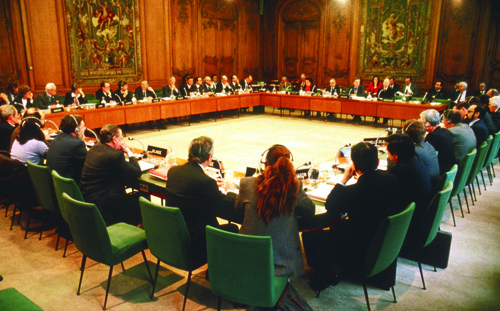
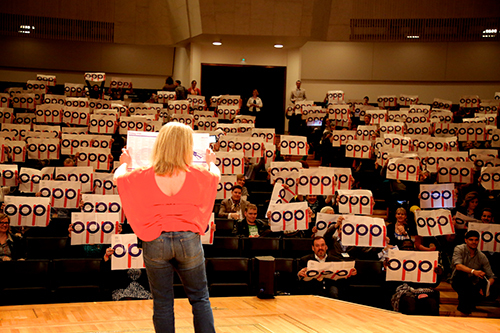
حالیہ تبصرے